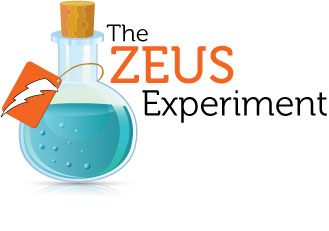 A guest post by Zeus Yiamouyiannis.
A guest post by Zeus Yiamouyiannis.
For those of you just tuning in, this is the latest in a series of posts for The Zeus Experiment, whereby I chronicle my learning curve and ups and downs in developing my own successful online business. Tea Silvestre is my mentor in this process. My posts are a mixture of philosophical perspective and nuts and bolts sharing.
I will start by confessing that I am not a corporate super-dad, nor do I aspire to be. I’m not holding down a full-time job, while training for the Ironman Triathlon, while taking a parenting class, while trying to develop an online business.
Right now, I’m a part-time consultant trying to develop a full-time career by expanding and deepening my reach online, developing valuable resources for others, and providing my own small way of improving the world.
From my recent experience, successful progress involves a balance between translating what you’ve been told, understanding who you are as a person, and considering what (time, money, etc.) you have available. The reality of this process is tough even with the advantages I enjoy— professional certification, success and momentum around my consulting, being debt-free, and having few financial pressures.
Regardless of your current situation, anything that “lessens the load” will help. Even (and especially) hearing from someone who’s just been down a particular road you might be thinking about taking. That’s what I aim to do for you with this post: point out the potholes so you can avoid them and shorten your trip from point A to point B. But before we go there, let’s check in on my overall progress…
Current Business Goals & Progress
- Get a functioning website up and running with a working opt-in (subscriber) box and connected to AWeber email subscriber service. Done! (There is still content to write, but the site works.)
- Get 500 subscribers by January of 2013 (Just starting this…stay tuned!).
- Finish a rough draft of my book Mindflexing by end of year 2012. (Good progress, especially this week.)
- Collect prior essays into e-book form to use as enticement for email subscriptions. (Stalled, because I am spinning too many plates. Intro is half done, and the essays just need some edits.) And finally (drum roll)…
- Generate $100,000 gross income by end of September 2013. (Now that number is just plain intimidating, but I hope to accelerate my learning to reach it. I certainly believe that the value I am offering merits at least that twice that much — in fact, my original goal was twice that much, but Tea thought I should create something slightly more realistic for a first year goal.)
And Yup, I missed the mark on providing a blog post for Tea last week, but I got one up on my own blog that is relevant. (Sorry, Tea. Spinning plates, spinning plates.)
The biggest lessons I learned over these last two weeks were:
- Be open to opportunity and trust yourself and your judgment.
- Don’t let anyone (including yourself) get in the way of your learning.
- Recognize that balance is crucial and order matters.
Balance is not just for mental health. It must support your overall business plan, otherwise you won’t be able to develop products and services in conjunction with the development your website.
 If you’ve poured all your time into website development, but haven’t quite gotten an idea what you are going to sell or give away as an enticement for email subscribers, then you may experience a kind of limbo, as you write your blog posts while feverishly trying to concoct something to sell.
If you’ve poured all your time into website development, but haven’t quite gotten an idea what you are going to sell or give away as an enticement for email subscribers, then you may experience a kind of limbo, as you write your blog posts while feverishly trying to concoct something to sell.
Doing things in a logical order can save you tons of time. I learned that the hard way when I found out that I didn’t have my domain email set up before I started creating accounts at places like AWeber, Disqus and Gravatar.
The time you spend having to go back and change things (if you can remember them all) can really put a crimp in things.
Also, setting Disqus or another plug-in as your comment/spam manager from the start, avoids some of the bugs that require you to do patching jobs.
Earlier comments on my blog posts did not show up once I installed Disqus, though they remained in my dashboard. So I had to export them to my laptop and then import them to Disqus, and even then Disqus duplicated some of the comments.
So here is my short hand list, in order, to help you past these snags in getting your email list to a connected Google Apps account, where you can start inviting your existing friends and colleagues to subscribe to your website:
Procedures for moving contacts and reaching out to friends about new website:
- Export email addresses (if necessary) from your non-gmail account as .csv file and import them into your new Google apps gmail account. If you haven’t gotten your domain name email as a Gmail account, read Tea’s great infographic on how to do it.
- Create/update your email signatures for all your email accounts. This might involve redescribing yourself. I’ve changed what I call myself from the boring “learning consultant, specialist in education reform” to simply “Learning transformation, innovation, and design.” My email signature now reads: Zeus Yiamouyiannis, Ph.D./aka Citizen Zeus/Learning transformation, innovation, and design/Email: zeus@citizenzeus.com /Cell: +63 xxx-xxx-xxxx (Philippines GMT +8)/Skype: zeusyia
- Draft your subscription invitation and save it as a “canned response.” (The canned response feature in gmail allows you to save the text and format of any email and then access it again later as a template — this saves time!)
- Test the message first with a group of, say, ten close friends who can give you frank feedback on the message, who can check to make sure the links work, and who can give you design tips or catch a spelling error. Make sure they subscribe as part of the test!
- Send personalized email invites to influencers and those closest to you. These will be the most likely to generate new subscribers for your list. Hopefully, you have some people you know who are both. Here’s my basic invitation: “Hi ___, Guess what I’ve been up to? I’ve finally got my new website, Citizen Zeus, up and running. It’s dedicated to discussing and developing transformative learning. I’d love for you to click on the link and subscribe once you reach my site. If the blog posts resonate with you please share on Twitter and Facebook. If someone you know could benefit from joining please forward this email to them with your own message. I look forward to sharing original and helpful insights in the weeks to come. Thanks, Zeus.”
So, there you have it, a little bit country and a little bit rock and roll! I’ll report in next week on how well this invitation worked. Oh – and I invite YOU to come visit my new site, check out the blog and subscribe if it looks like your thing, too.
***
A Word from Tea
As you’ve noticed, there’s been quite a lot of emphasis around here on Zeus getting his email list together. In reality, buying your domain name, getting your email configured and building a workable site that’s connected a subscription service shouldn’t take more than a week — possibly less — IF you have the prerequisite technical knowledge.
When you don’t have that skill set, things CAN tend to gum up and you’ll find yourself wanting to bang your head against the wall. My best recommendation is that if you don’t have the skills, but you do have the money, it’s a great investment to have someone put all of this together for you. The only caveat is that you find someone who is:
- Reliable and responsive — they answer their emails and voice messages within 24 hours and are able to meet deadlines.
- Skilled and knowledgeable — they know what a DNS setting is and how to change it without screwing things up.
- Reasonably priced — they deliver real value for the price they charge.
How do you find such a person when the landscape is littered with vendors that are flakier than a hot buttered croissant? You ask for referrals from people you trust.
Get at least three estimates from three different sources and make sure you compare apples to apples. Check references. Talk to people on the phone. Look at real websites. Ask hard questions.
And then get things in writing. Your perception of the deal that’s struck vs. their perception of that same deal is often different.
Not because they’re trying to pull a fast one, but because we’re all human and that’s just how we roll. The due diligence work up front will most likely help you avoid the pain of having a plate or two crash to the ground. And if you need help with any of this, you know where to find me.
But what about you? Where are you in this process and what have you found helpful or harmful on the road to success online? Share with us in a comment below.
photo credit: Tambako the Jaguar via photo pin cc






